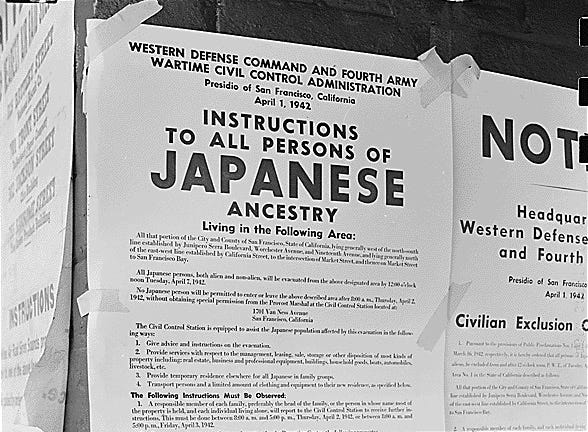President Trump and his lackeys are at it again. This time, they have ordered Federal sites like those in the National Park Service to search for and eradicate any historical accounts or markers which present the United States in a bad light. Considering our past, they have their work cut out for them.
Erasing uncomfortable history because of its inconvenience is revisionist. America has a terrible track record of reconciling our past and it’s high time we did it.
As an example, while current American’s shouldn’t shoulder the burden of collective involvement in past racist policies, one cannot ignore these being enacted by predominantly white politicians up into the 1960s.
Further, to a personal point, my ancestors who served in the American Civil War were not slave owners, but that fact doesn’t negate that slavery was wrong and that the Civil War was fought in large part to emancipate a group of people from the tyrannical shackles of human bondage.
Rather than eradicating the stuff we find offensive, we need to have substantive conversations about the things we find inconvenient and tough to discuss.
On February 19, 1942, President Franklin Delano Roosevelt signed Executive Order 9066 in to law. It is a comparatively recent, if overlooked, piece of Federal legislation that forced the incarceration of 125,000 Americans, most of whom were of Japanese descent, into ‘relocation facilities’ because they were deemed a threat to national security after the attack on Pearl Harbor on December 7, 1941.
That’s right, America constructed multiple concentration camps on our own soil, managed and maintained with Federal funding, administered under the auspices of the War Relocation Authority. These camps were capable of holding up to 5,000 people and were not done away with until 1946. This fact gets short shrift at the FDR historic home site along the Hudson River in New York.
Tens of thousands of people lost their livelihoods and property due to this policy and it wasn’t rescinded until 1976. It would be nearly 45 years since its enacting until repatriations were provided, the only ones of their kind, in 1988. Even still, when President Ronald Reagan signed the Civil Liberties Act into law, he did so reluctantly.

Paradoxically, a nearly all-Japanese American combat unit, the 442d Regimental Combat Team, served valiantly alongside their white counterparts. The unit was awarded 21 Medals of Honor, to include Senator Daniel Inouye, more than 4,000 Purple Hearts, and is the most decorated unit in American military history. They fought for ideals they held dear for a country which had turned its back on them, all while their families were incarcerated in the United States. Talk about a complex story. Oh, and the Department of Defense attempted to erase their contributions, too.
Please consider becoming a paid subscriber. It’s $2 a week—less than a beer when you go out and perhaps as satisfying without the caloric deficit—and $80 annually. It really helps me as a writer, and you’ll receive access to exclusive content including advanced project previews and releases. Thanks!
If you don’t think it can happen again, the Go For Broke National Education Center, a tireless advocate for Japanese American history as it pertains to the World War Two era and its aftermath, published in their newsletter:
Meanwhile, the [Trump administration’s] invocation of the Alien Enemies Act [established in 1798] threatens to recreate the same "race prejudice, war hysteria, and a failure of political leadership" that the federal Commission on Wartime Relocation and Internment of Civilians identified as the true drivers of Japanese American incarceration in 1983.
We can’t wish this away. We can’t just reorganize history to what suits us, ugliness and all. It does a disservice to those who endured the awful legacy of these policies, those who fell fighting for the American principles to end them (how these are applied is also worth discussing), and those seeking justice.
We must also consider what it really means to be an American since it’s clear we lose sight of that at times. History shows this is true and ignoring these parts of our National record isn’t the answer. As the Spanish-American philosopher George Santayana presciently wrote, “Those who cannot remember the past are condemned to repeat it.” This is not hyperbole.
The tragedy of EO 9066 isn’t that it was enacted and implemented by the United States government against its own citizens.
It’s tragic because it happened.







Loved this one Ivan.